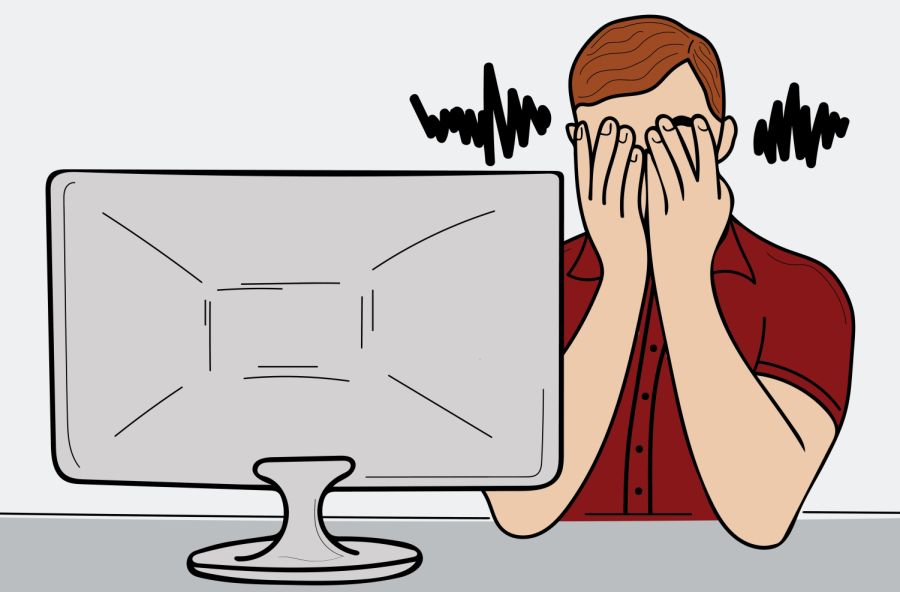A new study by University of Minnesota researchers published in the academic journal Healthcare Feb. 11 found work overcommitment, high levels of stress, loneliness and being male as leading causes for suicide ideation in lawyers.
Justin Anker, associate professor in the University of Minnesota’s Department of Psychiatry and the study’s lead researcher, said the study is one of the first of its kind to find the predictors of suicidality, or suidice ideation, in lawyers. In the study, suicide ideation is defined as having thoughts to end one’s own life.
The study had approximately 2,000 randomly selected participants from the California Lawyer Association and the District of Columbia Bar and examined the relationship between contemplating suicide and outside factors. These factors include stress, loneliness, work overcommitment, family conflict, alcohol use and prior mental health diagnosis.
The key finding is that lawyers with perceived high stress are 22% more likely to contemplate suicide than those who have low stress. Additionally, male lawyers, lawyers who experience loneliness and lawyers who overcommit to work are twice as likely to have suicidal thoughts.
“This is a population that’s really underserved in terms of [mental health] treatment,” Anker said.
Anker said he noticed the legal profession tends to ignore mental health, and understanding the problems lawyers face as well as the extent of their mental health motivated him to conduct the study.
Researchers looked into the impacts of pre-existing mental illness, depression related to COVID-19 and outside stress, but Anker said the work overcommitment and loneliness findings surprised him.
“You don’t really think about loneliness as being a predictor of suicidality or that the legal profession is a lonely profession,” Anker said.
UMN law school promotes wellbeing practices for students
Jay Wong, assistant dean of students at the University’s Law School, said the school has been working on combating stress, loneliness and overcommitment with its students in the past year.
“The purpose of Law School is to prepare our students for the professional world,” Wong said. “That in part is academic, but then also the non-academic piece.”
In December 2020, the Institute for Well-Being in Law evolved from the American Bar Association’s (ABA) National Task Force on Lawyer Well-Being. The institute’s goal is to “lead a culture shift in law to establish well-being as a core centerpiece of professional success,” according to the website.
Wong said in February 2022, the ABA updated its standards for educators and put a focus on well-being practices, which led to law schools across the country starting more well-being initiatives within the last year.
Prior to the new standards, Wong said the Law School had wellness programs in place, such as a Law School specific Let’s Talk counselor, which is through the University counseling program and allows students to connect with counselors on an informal basis. The school also has a wellness room with natural light, yoga mats and couches for students to take breaks.
Wong said the Law School is in the process of hiring a wellness coordinator, a new position within the school.
The responsibilities for this role will include advising student organizations to help create a community alongside programing, advising the Law School on its wellness practices and looking at the schedules the school sets for students. Wong said they are currently interviewing candidates and will have a person hired by next school year.
“Students feel like they have to do everything in order to set themselves up to be in the best position for employment,” Wong said. “Ultimately, that just pushes people into a space where they are overcommitted because there’s just not enough time to decompress.”
Wong said the challenge in adding well-being initiatives is being careful to not add additional tasks to students’ already large workload.
“Trying to figure out what the balance is to giving law students the tools they need in their toolkit to create practices now that establish a more balanced lifestyle [when they enter the legal field],” Wong said.
“The ingredients are rotten”
Anker said risk factors for suicide ideation are systemic, starting with a lawyer’s training, which is when high expectations of what it takes to be successful are placed on students.
During orientation, the Law School refers students to Lawyers Concerned for Lawyers, a free outside organization students can connect with for mental health help, Wong said. He said the school talks through mental health, substance abuse and suicide ideation during orientation as well.
Mica Standing Soldier, a third-year student at the Law School, said she has noticed the school creating spaces for students to talk about mental health.
Standing Soldier said law school is competitive in nature, but she feels lucky because her graduating class has been helpful and supportive of each other. She said she has friends in other years and from other schools who do not feel the same connection and struggle with the career’s competitiveness.
“I think there’s this interesting dichotomy between what law school can do and what the system of law is doing,” Standing Soldier said. “There’s only so much icing they can put on the cake if the ingredients are rotten.”
Standing Soldier said she would like to see the Law School add initiatives to address how being a student of color affects mental health within law training.
“A lot of law schools’, not just the U’s, main priority is to retain more students of color,” Standing Soldier said. “Really showing up for students in that way is, I think, how they’re best going to grow that goal.”
Standing Soldier said she thinks the current generation of law students is more open to discussing mental health and acknowledging issues like being overworked, high stress and loneliness. She said she appreciates the Law School holding panels about how to deal with stress in the professional world.
“They are definitely taking steps and I definitely see that,” Standing Soldier said. “But there is also a larger issue at play, which kind of works to counteract the work that they’re doing.”























